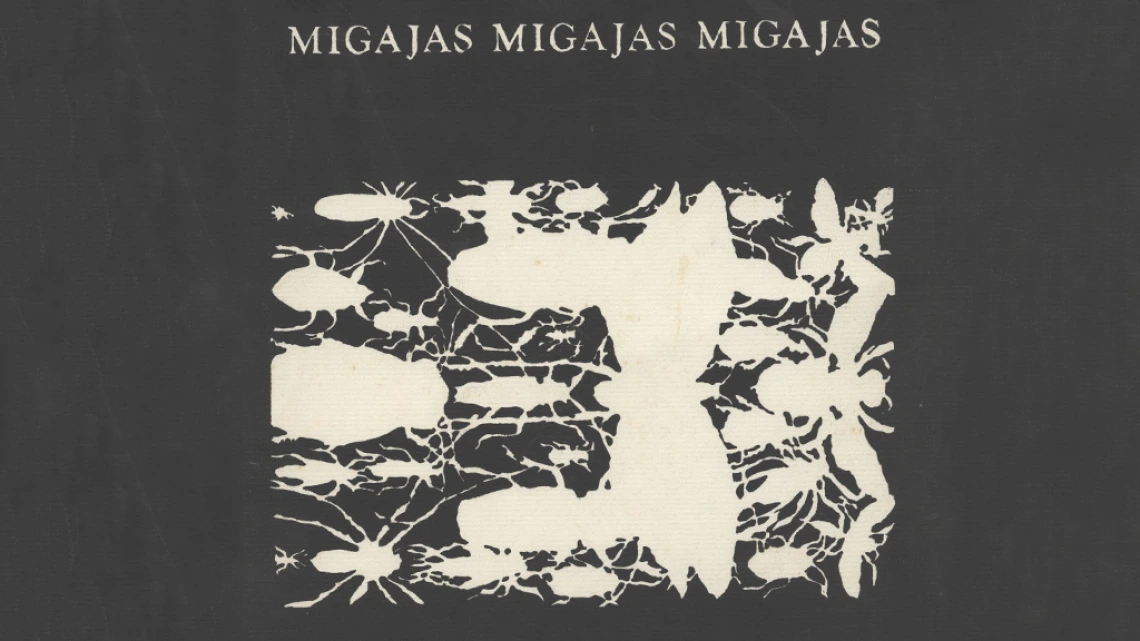Records of the Taller Martín Pescador Press, Juan Pascoe, Printer

Hand pressed Migajas Cover, undated.
Collection area: Literature
Collection dates: 1971-2019
The bulk of this collection consists of printing production materials of the handpress printer, Juan Pascoe. It is divided into five series. The bulk of the collection documents work done under the Taller Martín Pescador imprint.
Materials range from calling cards and invitations to exhibition posters; from chapbooks of avant-garde poetry to folio-sized historical studies and biographies of Mexican printers of the 16th-18th centuries. Writers and illustrators whose work first became known through publication at the Taller Martín Pescador have since become established as major figures.
Mainly in Spanish, with some English language materials. The number preceding the work corresponds with Mr. Pascoe’s numbering of his productions. Gaps in the sequence indicate titles that were catalogued separately, found later in the guide in Oversized Materials, or, in some cases, titles the archive lacks.
Juan Pascoe, handpress printer, was born in Chicago in 1946. He studied English at Whitman College, BA 1969. Pascoe spent a year as a printing apprentice to Harry Duncan at the Cummington Press in West Branch, Iowa, 1971-1972. He moved to Mexico in 1973 and first printed under Imprenta Rasucache, or “Shabby Press,” 1973-1975, before founding the Taller Martín Pescador (Kingfisher Workshop) in 1975.
In 1987, he produced the first book reflecting his historical interest in Mexican book arts (no. 112 on checklist). Pascoe has since become known for major studies of 16th and 17th century Mexican printers. He is currently located in Tacámbaro, near Mexico City.
A collection guide explains what's in a collection. New to using our collections? Learn how to use a collection guide.
Collection guideAccess this collection
Visit us in person to access materials from this collection. Our materials are one-of-a-kind and require special care, so they can’t be checked out or taken home.
How to cite
Learn how to cite and use materials from Special Collections in your research.
